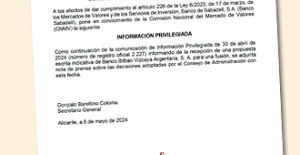From March 1, 2022, cosmetic products containing the Lilial substance cannot be marketed.
This causes controversy between the manufacturers and distributors of the cosmetic products that contain it, regarding who is responsible for withdrawing them from the market and for bearing the economic costs of it, since, up to that date, it has been possible sell normally, in accordance with current legislation.
At the European level, cosmetics are regulated in Regulation (EC) 1223/2009 of the European Parliament and of the Council, of November 30, 2009, on cosmetic products and, at the national level, this Regulation has its counterpart in the Royal Decree 85/2018, of February 23, which regulates cosmetic products.
Both regulations are applicable to cosmetics and to natural or legal persons who manufacture, import, place on the market, market, distribute, sell or professionally use cosmetic products. The objective is that the cosmetic products that are marketed are safe for health when used under normal or reasonably foreseeable conditions of use.
Due to this, the Regulation establishes some restrictions for certain substances in the composition of cosmetics, such as prohibited substances, substances subject to restriction, colorants, preservatives or ultraviolet filters. Within the prohibitions, in what now matters, the Regulation includes the prohibition of the use in cosmetics of substances classified as CMR (carcinogenic, mutagenic and reprotoxic) of category 2. These lists can be adapted according to the progress and technical evolution of the substances and products.
On March 1, 2022, the Delegated Regulation (EU) 2020/1182 of the Commission of May 19, 2020, published almost two years ago in the Official Journal of the European Union, entered into force. This Regulation modified list IV of Regulation (EU) No. 1272/2008 of the European Parliament and of the Council, of December 16, 2008, on classification, labeling and packaging of substances and mixtures, and included the substance butylphenyl methylpropional or 2-(4 -tert-Butylbenzyl) Propionaldehyde CAS No. 80-54-6, commonly known as Lilial, as CMR substance.
The controversy arises because in the cosmetic sector there is the figure of the responsible person, who will be the person who guarantees compliance with the requirements established in the applicable regulations.
The legislative change regarding the Lilial raises different issues. Should it be understood that products containing the substance Lilial must be withdrawn from the market by the manufacturer? And, if so, should you bear its cost? Or, on the contrary, is it up to the distributor, who acquired the Lilial products and did not market them within the long transition period, to withdraw them from the market and bear their cost?
In this sense, it should be remembered that in Spain the general principle of non-retroactivity of the regulations governs, so that any introduction on the market of the cosmetic product with Lilial before the aforementioned day of March 1, 2022, does not contravene the regulations applicable to cosmetic products. cosmetics. From there, a peaceful solution cannot be offered, because during a two-year transition period, relations between manufacturer and distributor can have many variants.
Given that the casuistry can be extensive, it will be advisable to analyze each specific case and, in particular, by way of example, but not limitation, the terms of the contractual relationship between the manufacturer and the distributor, the time of manufacture of the product, the date and content of communications from the manufacturer to its distribution chain regarding the new qualification of the substance Lilial and the date of purchase from the distributor. In this way, responsibility can be defined and, where appropriate, avoiding the use of the legislative amendment so that manufacturers suffer the consequences of an irresponsible purchase of this type of product.
In short, and given the impossibility of avoiding legislative changes that affect products already marketed, as a result of technical advances, it is necessary to appeal to transparent communication between market participants and contractual good faith, in order to avoid abuses and that the sector continues to enjoy a high reputation not only on the Community market, but also on the international market.

 Sabadell rejects the merger with BBVA and will fight to remain alone
Sabadell rejects the merger with BBVA and will fight to remain alone In Germany, the far left wants to cap the price of “doner kebabs”
In Germany, the far left wants to cap the price of “doner kebabs” Israel-Hamas war: Gaza between hope of truce and fear of Israeli offensive in the South
Israel-Hamas war: Gaza between hope of truce and fear of Israeli offensive in the South “Mom, Dad, please don’t die”: in the United States, a nine-year-old child saves the lives of his parents injured in a tornado
“Mom, Dad, please don’t die”: in the United States, a nine-year-old child saves the lives of his parents injured in a tornado A baby whose mother smoked during pregnancy will age more quickly
A baby whose mother smoked during pregnancy will age more quickly The euro zone economy grows in April at its best pace in almost a year but inflationary pressure increases
The euro zone economy grows in April at its best pace in almost a year but inflationary pressure increases Children born thanks to PMA do not have more cancers than others
Children born thanks to PMA do not have more cancers than others Breast cancer: less than one in two French women follow screening recommendations
Breast cancer: less than one in two French women follow screening recommendations “House of the Dragon”, “Succession”… Max, the new streaming platform from HBO and Discovery, launched in France on June 11
“House of the Dragon”, “Succession”… Max, the new streaming platform from HBO and Discovery, launched in France on June 11 The A13 motorway will finally reopen this Friday, in one direction only
The A13 motorway will finally reopen this Friday, in one direction only TNT commission of inquiry: tensions between LFI deputies and Macronists before the vote on the report
TNT commission of inquiry: tensions between LFI deputies and Macronists before the vote on the report Apple unveils a new, more efficient iPad range
Apple unveils a new, more efficient iPad range The Gaza War invites itself to the 2024 Pulitzer Prizes
The Gaza War invites itself to the 2024 Pulitzer Prizes Judith Godrèche presents a short film on sexual violence in Cannes
Judith Godrèche presents a short film on sexual violence in Cannes Kevin Spacey: new trial in sight in London for the American actor, for sexual assault
Kevin Spacey: new trial in sight in London for the American actor, for sexual assault Taylor Swift fans make London pub Black Dog their new place of pilgrimage
Taylor Swift fans make London pub Black Dog their new place of pilgrimage Omoda 7, another Chinese car that could be manufactured in Spain
Omoda 7, another Chinese car that could be manufactured in Spain BYD chooses CA Auto Bank as financial partner in Spain
BYD chooses CA Auto Bank as financial partner in Spain Tesla and Baidu sign key agreement to boost development of autonomous driving
Tesla and Baidu sign key agreement to boost development of autonomous driving Skoda Kodiaq 2024: a 'beast' plug-in hybrid SUV
Skoda Kodiaq 2024: a 'beast' plug-in hybrid SUV The home mortgage firm rises 3.8% in February and the average interest moderates to 3.33%
The home mortgage firm rises 3.8% in February and the average interest moderates to 3.33% This is how housing prices have changed in Spain in the last decade
This is how housing prices have changed in Spain in the last decade The home mortgage firm drops 10% in January and interest soars to 3.46%
The home mortgage firm drops 10% in January and interest soars to 3.46% The jewel of the Rocío de Nagüeles urbanization: a dream villa in Marbella
The jewel of the Rocío de Nagüeles urbanization: a dream villa in Marbella Institutions: senators want to restore the accumulation of mandates and put an end to the automatic presence of ex-presidents on the Constitutional Council
Institutions: senators want to restore the accumulation of mandates and put an end to the automatic presence of ex-presidents on the Constitutional Council Europeans: David Lisnard expresses his “essential and vital” support for François-Xavier Bellamy
Europeans: David Lisnard expresses his “essential and vital” support for François-Xavier Bellamy Facing Jordan Bardella, the popularity match turns to Gabriel Attal’s advantage
Facing Jordan Bardella, the popularity match turns to Gabriel Attal’s advantage Europeans: a senior official on the National Rally list
Europeans: a senior official on the National Rally list These French cities that will boycott the World Cup in Qatar
These French cities that will boycott the World Cup in Qatar PSG-Dortmund: a gigantic tifo on three stands to welcome the players
PSG-Dortmund: a gigantic tifo on three stands to welcome the players PSG-Dortmund: in video, Donnarumma’s decisive save which saves the Parisians
PSG-Dortmund: in video, Donnarumma’s decisive save which saves the Parisians Pro D2: Biarritz goes before the regulatory authority and reveals partners
Pro D2: Biarritz goes before the regulatory authority and reveals partners Champions League: without madness then cursed, PSG lets its dreams of the final fly away
Champions League: without madness then cursed, PSG lets its dreams of the final fly away


















